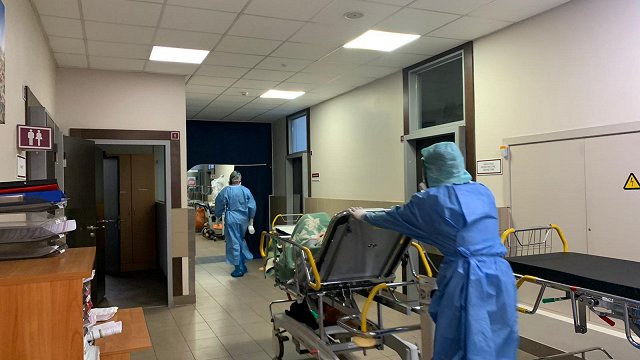Although an additional €140 million was found in the budget for healthcare in May from the pockets of the other ministries, the decision-making has taken time and only now the first 57 million are starting to flow into healthcare facilities. But the use of the remaining amount is not even decided yet. It is clear, however, that this will have little effect on the possibility of additional spots in state-paid visits later this year.
In mid-August, the broadcast De Facto called several dozen institutions in all regions of Latvia to book four different appointments for state funding – endocrinologist, neurologist, ultrasonography of the abdomen, and Holter monitoring.
Excerpt from a call to Stradiņš hospital:
Stradiņš Hospital: Stradite Hospital, please.
De Facto: I'd like to book an appointment with an endocrinologist.
Hospital: One moment. The nearest paid appointment is October 13.
De Facto: What about state-paid appointments?
Hospital: This year is fully booked.
De Facto: Everything is full, I see. And do you have, maybe you put people in waiting lines?
Hospital: No, we don't have a waiting line with specialists.
De Facto: What about ultrasonography?
Stradiņš Hospital: For ultrasonography, both state-paid and patient-paid slots are full by the end of the year.
By the end of the year, none of the four services required are available through public funding.
In other regions of Latvia, a patent should also count on waiting from one month to two years.
In the spring, it was already clear that there was an atypically high demand for visits with state funding, even 10, 15 and even 20% higher than usual.
The information gathered by National Health Service (NVD) in the spring, showed that at the time the waiting time for the gastroenterologist was 124 days. The lines are even longer now.
“You know, I also look at our lines, look at the demand, and I as a manager believe that rehabilitation and diagnostics – that's where patients shouldn't be waiting for months,” says Stella Lapiņa, chair of the Board of the Alliance of Health Centers (VCA).
The increase in demand for a state-paid service is explained both by the fact that doctors have not been visited during the limits of Covid, and by the fact that it is more difficult to afford paid services.
Although NVD asked for additional money in the spring, politicians were only able to come to a decision in the middle of the summer. So far, out of the extra €140 million found for the health sector, only 57 million have been distributed. And the €16 million earmarked for outpatient services is starting to reach medical facilities only now.
“In certain positions, we will review, of course, we will do everything we can to increase [services]. But to understand these figures – we do outpatient services for around €33 million a year. At the moment, we are talking to the National Health Service about half a million euro, it is only about 1.5% extra money – it represents the scale we can talk about additional funds,” says Rinalds Muciņš, Chairman of the Board of Governors of Pauls Stradiņš Clinical University Hospital.
That doesn't mean that suddenly the lines will get shorter. The money allocated will be used to pay for patients who have already been accepted.
“What will be given to us now [..] has been spent, these positions have been used, the checks have been done, the patients have visited – it is simply a fee for the work that has been done, because we have paid both doctors and suppliers and all has been paid,” explains VCA Head Lapiņa.
Virtually no one really knows how many people need one or another specialist service – what the actual demand is. Whether those referred have booked an appointment, whether one person is in several lines, whether someone has booked an appointment but failed to show up – these issues are planned to be monitored by creating new digital solutions.
"In principle, the service, in cooperation with all those involved in the sector, examines the possibility and works to form a single line. In other words, when a referral is received, the patient can book an appointment with one referral to a single medical facility," said Baiba Bērziņa.
It is still undecided how the remaining EUR 83 million will be distributed. Medical treatment authorities are calling for the decision not to be delayed so that the money can be used rationally. However, it is expected that for the additional money received this year, the medical treatment institutions will not open new slots, but will cover visits already in place or planned, which have increased by 10% and more this year, but still do not cover the demand.


























